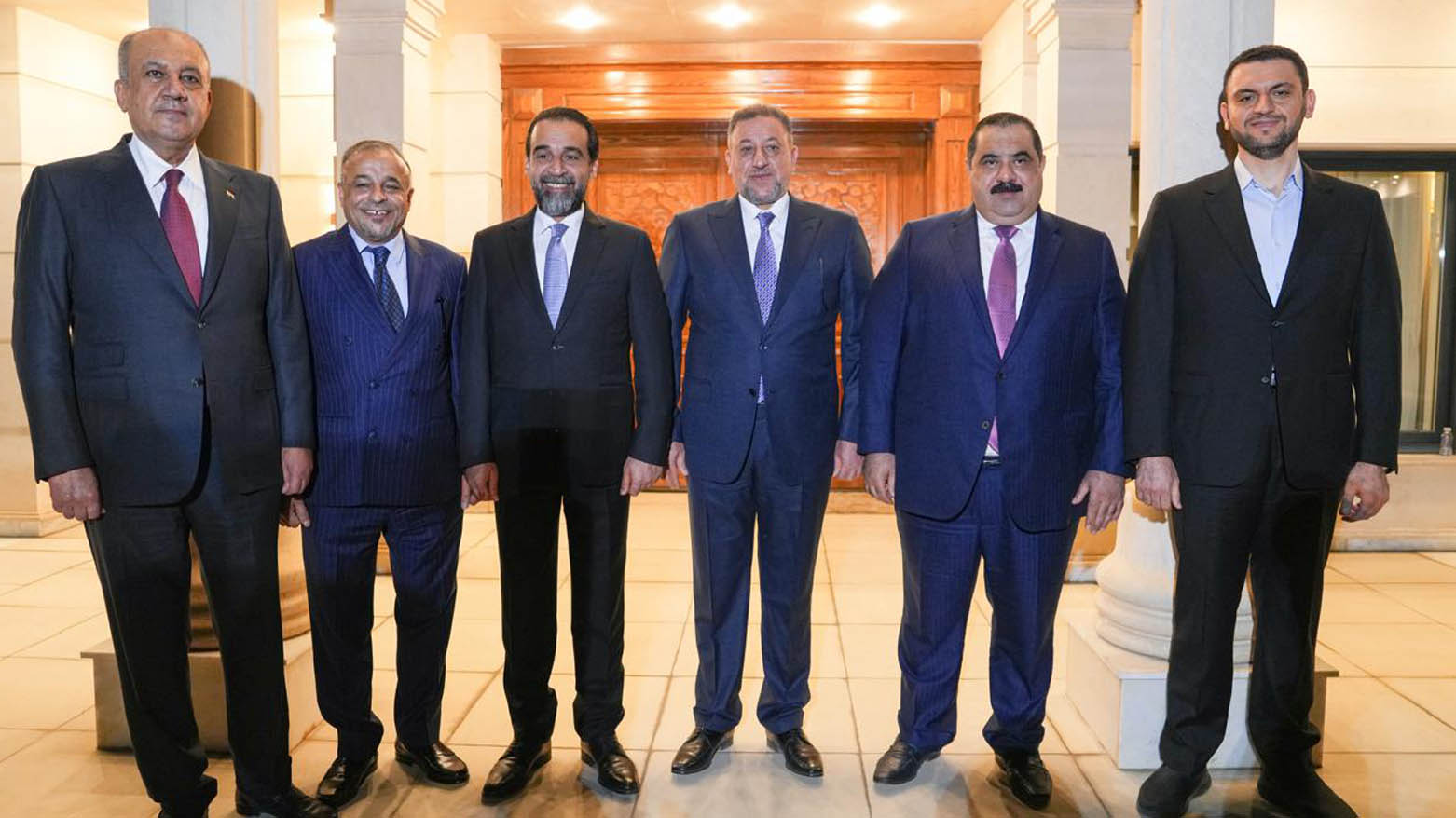Sunni Parties Form National Political Council to Coordinate Positions in Iraq’s Next Parliament
The announcement followed an expanded meeting in Baghdad, convened at the invitation of Azem Alliance leader Khamis al-Khanjar and attended by senior figures from the Taqadum Party, the Azem Alliance, the Sovereignty Alliance, the National Hasm Alliance, and al-Jamahir al-Wataniya.

ERBIL (Kurdistan24) — Sunni political parties that secured seats in Iraq’s recent parliamentary elections announced Sunday the formation of a unified “National Political Council,” marking a significant step toward consolidating their positions ahead of the sixth parliamentary session.
The announcement followed an expanded meeting in Baghdad, convened at the invitation of Sovereignty Alliance leader Khamis al-Khanjar and attended by senior figures from the Taqadum Party, the Azem Alliance, the Sovereignty Alliance, the National Hasm Alliance, and al-Jamahir al-Wataniya.
In a joint statement, the parties said the gathering focused on the political challenges facing Iraq at what they described as a “pivotal stage,” as well as issues affecting Sunni-majority provinces. Leaders discussed recent political developments and assessed the nature of the current challenges, underscoring the need to unify efforts and adopt a shared vision to preserve political and social stability.
They stressed the importance of safeguarding constitutional rights, strengthening representation within state institutions, and coordinating positions on national issues.
According to the statement, the newly formed National Political Council will serve as an umbrella framework for the five major Sunni parties, aligning their views, decisions, and strategies. The parties also agreed to continue holding regular meetings throughout the upcoming parliamentary term.
Party leaders emphasized that the council will remain open to all national partners and committed to principles that uphold Iraq’s unity and stability while protecting the rights of all communities without discrimination.
Polling for the sixth session of the Council of Representatives took place on November 11, with voting open from 7:00 a.m. to 6:00 p.m. across all Iraqi provinces, including the Kurdistan Region.
According to the Iraqi Independent High Electoral Commission (IHEC), voter turnout has surpassed 55 percent — an increase compared to recent electoral cycles. The commission said the figure is based on data from most polling centers and reflects the participation of more than 12 million voters out of over 21 million eligible Iraqis.
This year’s election featured a crowded field of political contenders: 38 political parties, 31 coalitions, and 75 individual lists. In total, 7,768 candidates—5,520 men and 2,248 women—competed for seats in the 329-member parliament.
The vote was held under a revised electoral framework, introduced in response to demands that emerged from the nationwide protests of 2019–2021. The system replaced proportional representation with a single non-transferable vote mechanism, dividing the country into 83 multi-member constituencies.